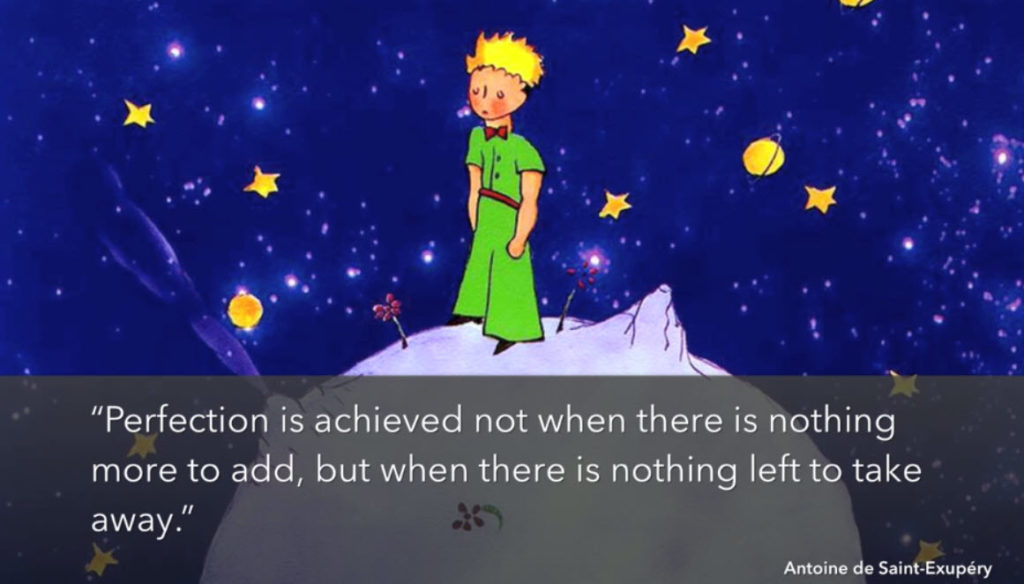 Ahh, the age old question, “how to be happy”…
Ahh, the age old question, “how to be happy”…
Who among us doesn’t want to be happier?
Most people, actually.
“The fuck did you just say Sam?” 😂
If you’ll bear with me, I’ll explain, pinkie swears!
Part of the problem is in the phrase itself; people say they want to BE happy, as if happy is some destination on a map they can travel to, a permanent state.
Alas, it is no such thing. And in fact, the very word happy is probably being misused, or perhaps it’s just the wrong word for what people truly want.
Most people say happy but mean excited, joyous, jazzed, pumped, warm and fuzzy—boosted dopaminergic states—but that is not BEING happy, that is FEELING happy.
And as you may have realized, consciously or subconsciously, ALL feelings are transient.
If you want a true definition of happiness, one that is not transient, it is this: being content with how things are, however they happen to be, not wishing anything were different.
In such a state, you would reside in unshakable equanimity. Ommmmmmmm. 😁
So perhaps it’s just that happy is the wrong word, for that state I just described is more akin to contentment, and it is that which people would truly benefit from, rather than the standard Dopaminergic “happy fix” they’re used to.
If you want to truly be happy (err, content), there is only one step: wake up.
Wake up to the realization that only by living in the moment, fully aware, not making your happiness dependent on anything, can you ever truly be consistently at peace.
But shit, that’s a nearly impossible step for most, so I’ll throw ya a bone 😁
If you just want to FEEL happy, I got you!
According to psychologist Sonja Lyubomirsky, feeling happy comes down to roughly 50% genetics, 40% choices, and 10% circumstances. If this is correct, that means you only really control 40-50% of the factors influencing your happiness…at best. (Depends on your take on free will.)
But the bit you maybe control can be hugely impactful, and to some degree you may be able to affect the genetic component by tweaking your brain chemistry in various ways. Perhaps in the future you’ll even be able to tweak your happiness genes or brain chemical levels directly, but I digress.
Again, I think it’s important to point out that “Happy” to most people is simply a balanced brain chemical cocktail: dopamine, serotonin, endorphins, oxytocin, etc. You feel good, nothing in particular is amiss.
“Sad” is an excess of cortisol, glucocorticoids, and a lack or imbalance of happy chemicals. Sad could also involve an excess of adrenaline or norepinephrine, though in the right situations there’s nothing wrong with those chemicals.
Again, it’s all about balance.
In order to feel happy, as subjective as that state may seem, you need to tick all the right boxes to get your brain chemical cocktail in the right zone (this is a gross oversimplification, though fundamentally accurate).
So here you go, the 15 key elements to feeling happy, according to science:
1. Feeling in Control – And at least to some degree, perhaps actually in control (of your life, your time, having choices, etc.)
Wealth (or at least sufficient monetary resources for your needs) is a key enabler of this, as it gives you choices. The Princeton study indicating that ~$75,000/yr is the monetary cap for an impact on one’s happiness seems like absolute horse shit to me (and was probably backed with funding from conflicting interests); such studies usually offer correlation only, not causation…in this case, at least in part because the majority of people make way less than $75,000/yr, but mostly because the average human has no clue HOW to be happy, regardless of how much money they make…which is probably why you’re reading this 🙂
Update: The $75,000 happiness study has been debunked.
2. Frequent Flow States – Flow what? Flow is a mental state where you are deeply focused on the task at hand, your awareness of time passing has slipped…you’re “in the zone”. You want to experience this daily if possible, ideally in 1-2 hour chunks.
To get into flow you need focus, a lack of distractions, a task that is at the edge of your ability, and immediate feedback (good or bad). Hobbies, extreme sports, video games, learning new skills, and even reading are all excellent ways to achieve flow.
To gain a fantastic understanding of flow, I recommend the book The Rise of Superman.
3. Close Social Bonds – For most people, social bonds play a critical role in their overall happiness. Getting together with friends and/or family to have fun at least once per month is ideal, though doing something weekly is better. Group trips, long group meals (2-3 hours), frequent chats, etc.
It’s less about the amount of time, and more about the frequency, quality, and the feeling of connectedness. The degree to which you need this may vary between introverts and extroverts, but it’s still a need for almost all people.
In fact, not only does this element optimize for happiness, but it also seems to be a factor in both longevity and health, for a nice triple whammy!
4. Sense of Gratitude – One of the best ways to get out of a funk is to list all the things you are grateful for. Find every aspect of your life that is positive, enviable, or in any way awesome. There’s probably far more than you are aware of, especially if you’re not currently in a good mental place.
Journaling is really helpful (the 5 Minute Journal is my personal favorite), as is developing a sense of relative awareness (Global Rich List, Statistics). Learning to maintain an objective view of what you have is key. It can also help you to remain humble, knowing how much you likely have in relation to others.
That said, comparing yourself to others is an unhealthy path, so do with that as you will.
Just be grateful for what you have.
5. Giving Back / Service – Helping others in some fashion triggers a part of the brain known as the posterior superior temporal sulcus (PSTS), the part of the brain seemingly tied to altruism. Weirdly, the nucleus accumbens (the part of the brain related to selfishness, among other things) appears inactive at the same time the PSTS is firing.
How you give back seems to be irrelevant, so long as it is meaningful to you. In my experience and from numerous interviews with people about this subject (and studies to back it up), this likely has more to do with assuaging some inner sense of guilt or status signaling than anything else.
If you have sociopathic leanings (not necessarily a bad thing) this may not be a factor for you.
That said, I’ve found that what you put out most certainly seems to come back to you, often magnified, so make of that as you will. I don’t believe in Karma in the traditional sense, but this rebound effect does seem to be a thing.
6. Frequent Novelty – Having new experiences, trying new things, and going new places all play a role in your feelings of happiness.
Your brain craves variety, new and exciting stimuli. In many ways, I believe that diagnoses like ADD/ADHD may just stem from a lack of novelty and flow in someone’s life (what exactly do you expect, sticking digital kids in analog schools?)
Granted, something doesn’t have to be “new” per se to tick this box, so long as enough time has passed since you did it last that it feels new-ish. Some things tend to lose their awesomeness if done too frequently, so be aware if something you love doing starts to feel tedious or excites you less, as it means you’re overdoing it.
7. Positive Anticipation – Hand in hand with novelty, you need things to look forward to. I recommend having tiered things to plan for (weekly, monthly, quarterly, yearly). Plan them well in advance, and in detail. Think about them. Anticipate them.
A vacation you’ll take. A meal you’ll have. A game you’ll play.
You may well gain as much if not more satisfaction from the anticipation and planning as you do the fulfillment, which is the point.
You don’t want to get bogged down here, planning and never doing, but make sure you have lots to look forward to and that you actually do the things you plan.
One counterpoint to this though. In the world of Zen, living in the moment with no thought of past or future is considered the ideal. And considering that anxiety is future-focused, and depression past-focused, there may be something to truly living in the moment and not energizing the past or future.
Maybe give both a shot and see what makes you happier 🙂
8. Love / Sex – A stable primary relationship is important for most people, and that has deep biological and sociological roots. However, going back to #6 above, traditional sexual monogamy may not actually be ideal (and in fact, this seems to be even more so for women than men).
Having one primary emotional relationship/life partner, plus occasional sex for fun/variety on the side, seems to be the ideal structure from a physiological and psychological perspective, and if done with thoughtfulness has no downsides that I can find.
The Japanese have understood this for centuries!
9. Good Health / Mobility / Mental Acuity – You need to be in good enough mental and physical condition to enjoy all this happiness, but at the same time happiness increases one’s health, mobility, and mental acuity. Talk about a positive feedback loop!
Doing your part in regards to a healthy diet, exercise, sufficient high-quality sleep, and careful supplementation guided by data is critical (you can get some wicked cool personalized data from sources like Oura, Viome, WellnessFX, and Veritas Genetics to name a few). Speaking of, lucky genetics can certainly factor in here, so understanding your genetics is super helpful.
Longevity can be extended in a variety of ways (a post for another day), and many brilliant thinkers believe that immortality and perfect health are on the horizon.
Here’s what I do personally to live healthier and longer.
10. Physical Activity – The brain is in its ideal state when the body is physically active (especially outdoors in nature). When moving around, being active, your brain is running at full speed, and you are most “alive” and in the moment. Sufficient physical activity also releases happy chemicals such as endorphins, so it’s a double bonus.
It seems to be less about total time active, and more about the frequency and type of activity.
Making sure you get up and move around for a few minutes or so at least once every hour should be your bare minimum for all you desk sitters out there. Aiming for at least 10,000 steps a day is a widely recommended target, and a decent place to aim (though the number may be arbitrary, and will likely need to vary from person to person).
This can tie in directly to #2, as certain physical activities can induce flow (extreme sports in particular).
If you’re struggling with a mental challenge of some sort, or are feeling down, a nice walk (particularly in nature) can work wonders.
11. Time Spent Outdoors – This can tie into #10, as many studies have shown that time in nature, away from people and gadgets, time with just the natural world and your mind can be incredibly invigorating.
It can boost your mood dramatically (especially true if you live in a city). Walden Pond style 😊
12. Little to No Distress – There are two types of stress, distress (bad), and eustress (good). Distress triggers cortisol, and too much of that shit will kill you long-term. One great way to aid in this element is to practice some form of mindfulness, be it meditation, stoicism…healthy coping mechanisms.
Certain drugs (low THC/high CBD marijuana flowers consumed in low to moderate doses only via edibles or a vaporizer, regular psychedelic micro-dosing or infrequent guided full doses) also appear to help combat stress, with few if any downsides (or so the fairly limited formal evidence seems to show; but it’s really up in the air as there are insufficient studies examining the positives and negatives long-term).
We all face distress sometimes, but our exposure should be minimal and infrequent if possible. Avoid fear, dread, worry, and negative visualization. If you face those emotions in certain situations with great frequency, find a way to remove yourself from those situations.
Learning to live in the moment, and to avoid getting lost in the past or the future, is a key to loving life.
13. Positive Attitude / Outlook – Be hopeful and enthusiastic. Focus on the positives, the upsides. If you believe things suck, then to you things will seem sucky regardless of the reality.
Your perceptions define your reality.
Avoid mass media, because pageview journalism is deliberately negative, and many if not all media outlets have their own agendas that in now way involve your well-being. A stressed and depressed populace lines their coffers through increased pageviews and thus ad views.
And a scared populace gives away their freedom to those who claim to protect them.
Focus on the positive in the world instead (futurism, tech research, your own happy plans per #7, etc.) This doesn’t mean you can’t or shouldn’t be aware of so called “negatives”, but at the very least make sure your inputs are well balanced and that you explore both sides of any issue.
On that note, avoid black and white thinking. Reality exists on a spectrum, and simple polarization is almost always a fallacy.
14. Knowledge – The more you know, the more you can appreciate, and the less you live in the dark (and the less people can use your ignorance to control you). Of key import is learning to think clearly, how to identify and overcome biases, how to use logic, etc. Everyone should be well versed in at least the basics of psychology and philosophy.
Go read my book, Screw the Zoo 🙂
If you possess, or can develop, a love of learning, you can also tick the novelty box with this as well.
Of course, a counterpoint:

You may find yourself far happier subtracting knowledge instead of adding it, and some research indicates this subtractive path is actually the path to Enlightenment.
Maybe give it a whirl.
15. Sense of Purpose – A life without purpose is, for most, a life without true happiness. Human lives need meaning…the source of the meaning, or the purpose itself, matters relatively little. It just needs to be meaningful to you.
That said, you don’t need a single purpose for a lifetime (see #6 again). You’ll be better off reevaluating your purpose periodically, because like everything else in the Universe, you are constantly changing.
Switch it up if at any point your prior purpose no longer excites you.
Conclusion
While there are certainly other things to consider, these are an extremely comprehensive foundation, and if your baseline feeling of happiness hasn’t radically improved after implementing some or all of these, then I don’t know what to tell ya.
That said, it can be VERY difficult to work on happiness if your baseline physical and safety needs aren’t being met. So long as your bottom two tiers on Maslow’s Hierarchy are sorted out, these steps should help.
The thing is, those bottom rungs are largely money problems, and as Naval Ravikant would say, “Money solves money problems.”
From what I’ve seen, money in fact CAN buy feelings of happiness (or at least enables easier access to all facets of it), but it’s only an enabler.
Having wealth is to your benefit only if you are aware of and can check most if not all of the boxes above. You must be mentally and emotionally equipped to make the most of wealth before it will truly benefit you.
If you aren’t mentally prepared, wealth may well destroy you and those around you.
—
As you’ve no doubt realized, our world today is not optimized for happiness.
Schools and offices are the total opposite of the environment in which the human brain performs best. Capitalism and the consumer mindset leave one in a constant state of wanting, with an ever-present feeling of insufficiency. Those feelings lead to financial overreaching, which in turn traps you into more work.
It is not possible to feel trapped and be truly happy at the same time.
Social expectations around relationships are far from ideal. Numerous artificial limitations regarding gender conformity and sexual orientation prevent many from finding happiness.
A need for external validation holds most people back, as true self-worth must come from an internal place, and that understanding is in direct conflict with a consumption and comparison driven society.
If you want to become truly happy, then it’s time to turn your back on the “drugs” that mainstream society is peddling.
Start following the steps above, learn how to feel happy…and let me know how it goes!
If you want to go further down the happy/unhappy rabbit hole, my buddy Ed Latimore has great posts on happiness and unhappiness, Mo Gawdat has a fantastic book called Solve for Happy, and Dan Jeffries has a great article (and book) on Mastering Depression.
Also, I would highly recommend reading Awareness by Anthony de Mello, and if that floats your boat, Spiritual Enlightenment: The Damndest Thing by Jed McKenna.
